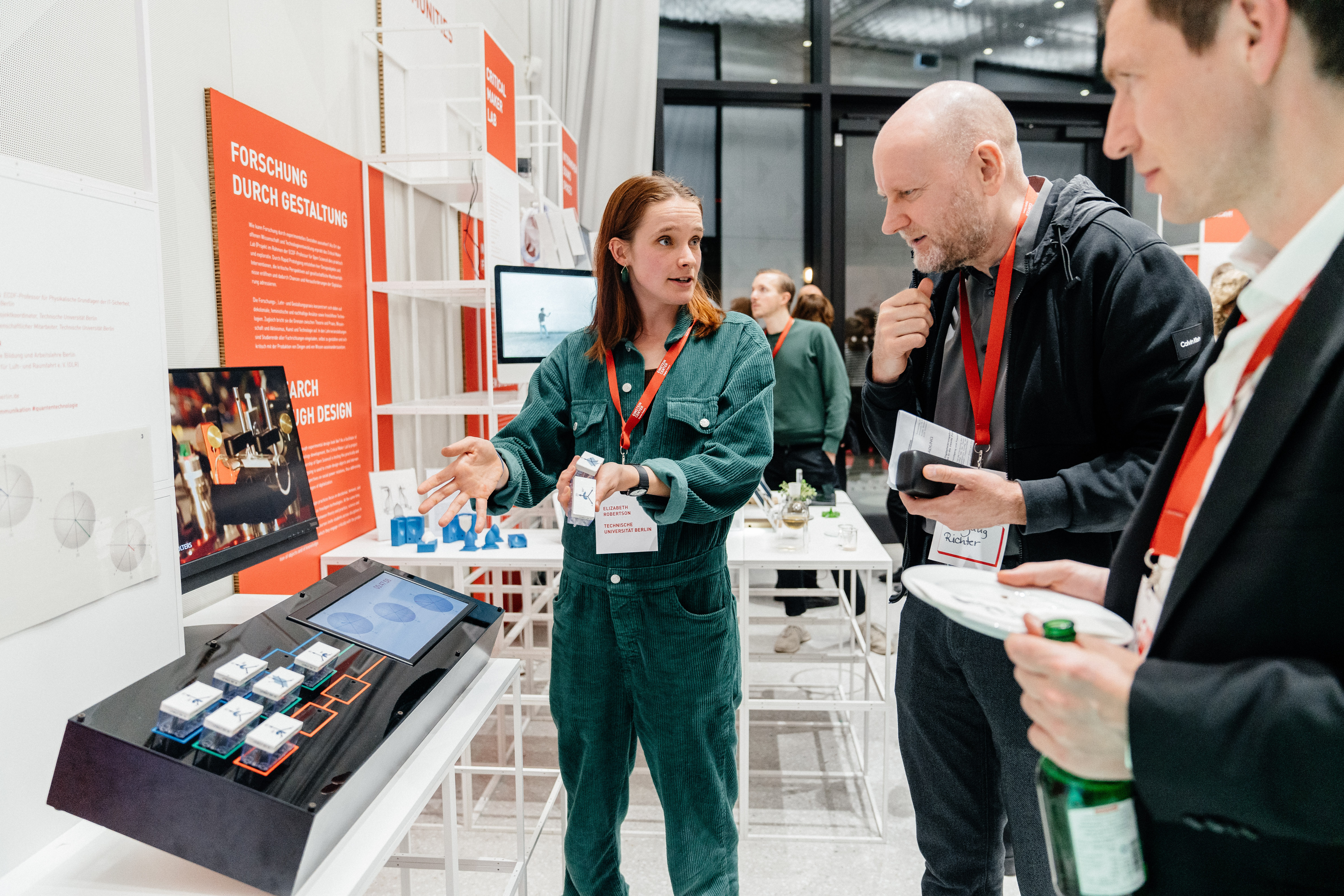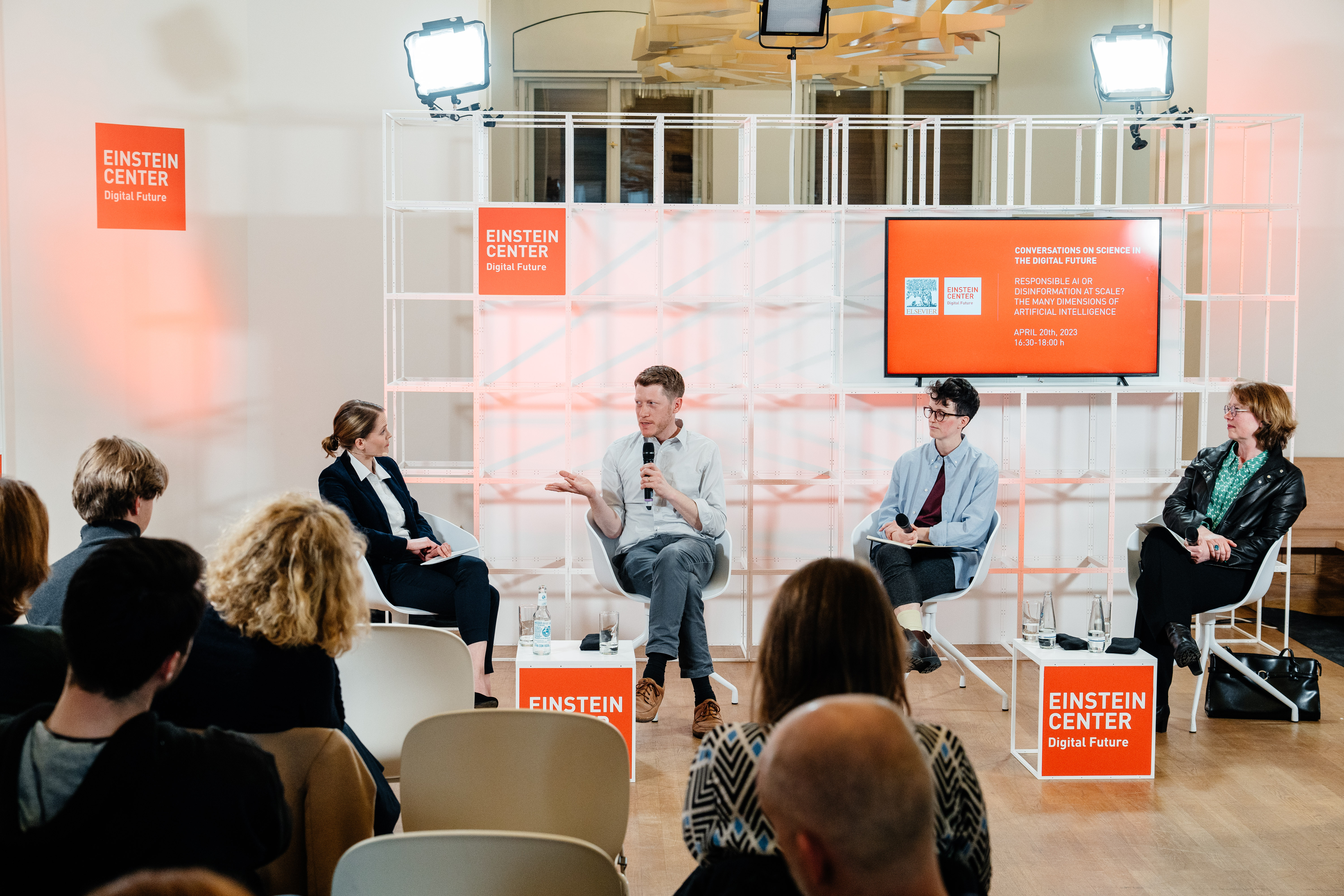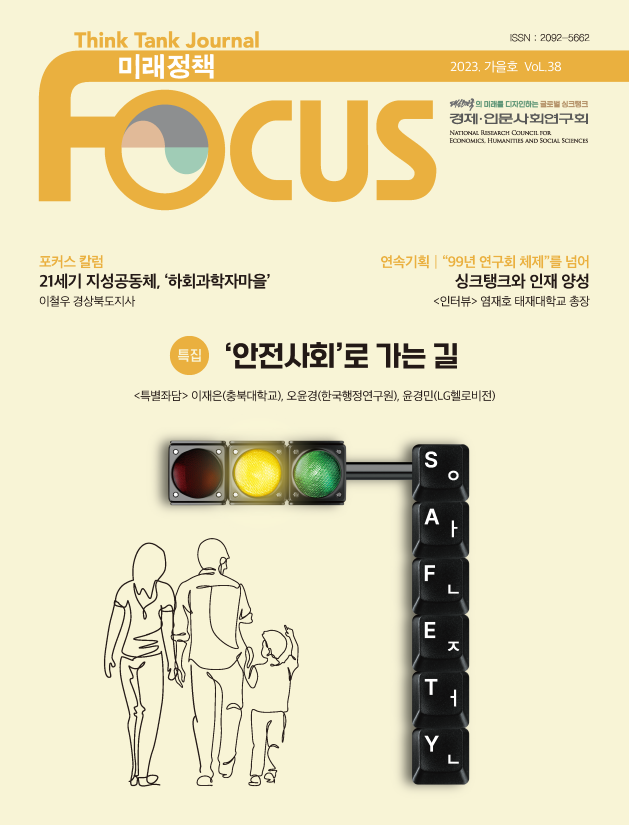연속기획 “99년 연구회 체제”를 넘어 - <특별기고> 아인슈타인 디지털 미래 센터
디지털 전환과 학제 간 연구를 위한 베를린의 허브
현대 과학은 새로운 기술과 디지털화라는 커다란 도전과 질문에 직면해 있다. 이러한 문제를 다학제적 방식으로 조명하기 위해 베를린의 주요 대학과 샤리테(charité) 대학병원으로 구성된 컨소시엄이 공동 프로젝트로 베를린에 ‘아인슈타인 디지털 미래 센터(Einstein Center Digital Future, ECDF)’를 설립했다. ECDF는 민관 제휴 프로젝트로서 학제 간 장벽을 넘어 디지털 전환 문제를 해결하기 위해 과학·산업·정치·사회 분야의 연구 협력을 증진하는 동시에 컴퓨터과학, 엔지니어링, 자연과학, 인문학, 의약학 간의 상호작용을 촉진하고 있다. 2023년 4월까지 3,850만 유로 이상의 기금을 유치하였으며, 40명 이상의 교수를 초빙하여 디지털 인프라, 방법론, 알고리즘, 디지털 보건, 디지털 사회, 디지털 산업 및 서비스 분야의 연구를 집중적으로 진행하고 있다. 전환사회(Transforming Communities), 통합 보건(Integrated Health), 지속가능한 도시변화(Sustainable Cities)에 대해 연구할 예정이다. 구체적 연구로 디지털화로 인한 시장과 조직의 변화, 탄소중립 도시 건설, 합리적인 비용과 안전성을 갖춘 도시 서비스, 진료 과정에서 앱을 통한 의료 의사결정 등이 있다. 이러한 연구 주제들은 다양한 과학 분야의 전문 지식을 바탕으로 종합적 해결책을 개발해야 한다.
ECDF가 강조하는 연구의 자유

독일에서 ECDF가 특별한 이유는 산업계, 과학계, 정치계 등 민관 이해관계자들이 한자리에 모여 있을 뿐만 아니라 독일 기본법의 토대인 ‘연구의 자유’를 강조하기 때문이다. 따라서 기업들이 교수 또는 연구에 대해 직접적인 영향력을 행사할 수 없으며 ECDF는 기업을 위한 연구를 수행하지 않는다. 베를린 중심에 연구 공간을 만들고 학제 간 경계를 넘나드는 열린 교류의 문화를 조성했다. ECDF는 세계 우수한 학자들의 연구를 위한 방문을 환영하고 최고의 대우를 제공한다. 이밖에 ECDF의 미래를 위한 연구 기반을 다지고 있으며 온라인 플랫폼 경제를 중심으로 한 디지털플랫폼 생태계에 대한 분석과 설계를 진행하고 있다. 특히 플랫폼과 알고리즘의 신뢰도 관련 문제 및 사용자 간의 신뢰, 그리고 온라인 평판 시스템을 통한 신뢰 형성 및 메커니즘의 설계 기법을 중심으로 연구를 수행 중이다. 에어비앤비, 짐라이드, 아마존, 잘란도와 같은 다양한 플랫폼을 아우르며, 폭넓고 복잡한 구조 때문에 다학제 간 연구로 설계되는 경우가 많다. 연구 내용은 사용자의 행동 및 심리, 기술적·법적 측면뿐만 아니라 전략적 측면에 대한 조사도 포함한다.
혁명을 일으킬 기술의 변화에 적응하려면

최근 한 프로젝트에서는 AI의 신뢰도와 이 기술을 이끌고 있는 주도 요인 및 통제 방안을 고찰했다. 사람들은 이미 AI와 AI 기반 도구를 일상적으로 사용하고 있으며, 그 중요성은 앞으로 더 커질 것이다. 사람들이 AI를 어떻게 사용하는지와 AI를 활용하는 데 실패하는 이유를 이해하는 것이 무척 중요하다. 챗GPT는 이미 많은 직무에 큰 영향을 미치고 있고, 그 역할은 엑셀, 위키피디아, 구글만큼이나 대중화되고 있다. 엑셀이 숫자 자료를 처리하는 데 있어 혁명을 일으키고 위키피디아와 구글이 정보 접근성에 혁명을 일으킨 것처럼, 챗GPT와 같은 AI 도구들은 문자 언어를 처리하는 데 혁명을 일으킬 잠재력이 있다. 엑셀, 나이브스나 다른 강력한 AI 도구들처럼 챗GPT 역시 의도치 않은 많은 피해를 일으킬 수 있다. 사람들은 모든 도구의 태생적 편향성, 오류 경향성, 한계를 인지해야 하지만 우리는 아직 AI 기반 챗봇에 대해 잘 알지 못한다. 이러한 도구가 그 강력함만큼이나 유익함을 제공하려면 숙련된 사용자가 필요하므로 대중과 접촉, 교육하고 연구결과를 산업계·정치계·사회에 더 널리 알리는 것 또한 ECDF의 목표이다.
Einstein Center Digital Future
Berlin's hub for interdisciplinary research on the digital transformation
Today’s society faces grand challenges and questions in view of new technology and digitalization. To address on these questions in an interdisciplinary manner, the Einstein Center Digital Future (ECDF) was established in Berlin as a joint project by a consortium of Berlin’s major universities and Charité (university hospital) in spring 2017. It was joined by more than 30 companies, ranging from Amazon, Siemens, to Zalando, as well as scientific research institutions such as the German Aerospace Center Berlin. As a Public-Private-Partnership, ECDF implements a concept for collaborative research in science, industry, politics, and society, fostering interaction among computer science and engineering, the natural sciences, humanities, and medicine to tackle these questions beyond silos.
For the first period until April 2023, ECDF acquired more than 38.5 million Euros in funding and focused on research in the domains of Digital Infrastructure, Methods and Algorithms, Digital Health, Digital Society, and Digital Industry and Services with more than 40 appointed professors. In July 2022, after a successful evaluation by an international panel of experts, the ECDF received a funding commitment for an extra five years until 2028. “In this second funding phase, ECDF’s aim remains to be an enabler, accelerator, and meeting point for digitalization research in Berlin by thinking outside the box, empowering collaborative research, and pursuing a holistic approach to current and future challenges in the digital world,” explains Prof. Dr. Timm Teubner, member of the ECDF’s Board of Directors.
“For this next phase, three research areas have been identified to be at the focus: Transforming Communities reflects our mission of digitalization serving people and impacting everybody; Integrated Health is one of the areas which will be subject to the most revolutionary changes due to digitalization; and Sustainable Cities, where we will be investigating the impact of digital transformation on sustainable cities and urban transformation,” he adds. Research questions for this next phase include: How does digitalization transform organizations and markets? How can digital technologies help achieve climate-neutral and resilient cities and safe, inclusive, just, and affordable access to their services? How can patients be more involved in medical decision making by using health apps? How is AI being used by people, organizations, and employees – and where are chances, risks, and pitfalls? “These research questions cannot be answered from a purely medical or economic perspective but need the expertise of different scientific fields. This is the only way to develop holistic solutions”, Teubner explains.
What makes the ECDF unique in Germany is its combination of public and private stakeholders from industry, science, and the political landscape while – at the same time – it emphasizes the freedom of research, a cornerstone of the German Basic Law. Hence, the involved companies do not exert any direct influence on the professorships or the research, nor does the ECDF conduct contract research for companies. Located in the heart of Berlin, ECDF creates space for research and has established a culture of open exchange across disciplinary boundaries. It is welcoming and hosting excellent researchers from around the world for short-, mid-, and long-term research visits.
Dr. Teubner is one of ECDF’s tenured professor, building the center’s research foundation for the upcoming years. The focus of his work is the analysis and the design of digital platform ecosystems (i.e., the online platform economy), in particular questions around trust in platforms and other digital services/algorithms, trust among users, and how platform and mechanism design may support the creation and maintenance of trust (e.g., through online reputation systems). Since this area is broad (i.e., platforms ranging from A(irbnb) to Z(imride), from A(mazon) to Z(alando), …) and complex in all its details at the same time, many of the group’s research projects are interdisciplinary by design. This includes the investigation of user behavior and psychology, technical, legal, as well as strategic aspects. Professor Teubner’s research is primarily based on quantitative approaches, including laboratory and field experiments, structured surveys, network analysis, as well as analysis of secondary data using statistical and data mining methods.
A recent project considers trust in AI and the drivers and moderators of this process. Today, people already use AI and AI-based tools on a daily basis and their importance will only grow in the future. “To me, it is essential to understand how people use AI and, in particular, how they fail to do so”. Tools like ChatGPT have already had large impact on many job deions and their role is as fundamental as the use of Excel, Wikipedia, or Google Search. Just as Excel revolutionized the handling of numerical data and Wikipedia and Google revolutionized our access to information, tools such as ChatGPT have the potential to revolutionize the handling of written language. But: Just like Excel, knives, or any other powerful tool, this may also cause a lot of unintended damage. People need to be aware of any tool’s innate bias, error-proneness, and limitations but what we see with AI-based chatbots right now: they don’t. These tools need proficient users to become as beneficial as they are powerful. ECDF’s mission hence also includes a component of public outreach and education, broadcasting our research to wider audiences in industry, politics, and society.
기사는 어떠셨나요?
이 기사에 공감하신다면 ‘공감’버튼으로 응원해주세요!
독자 여러분께 더 나은 읽을거리를 제공하는데 도움이 됩니다.

